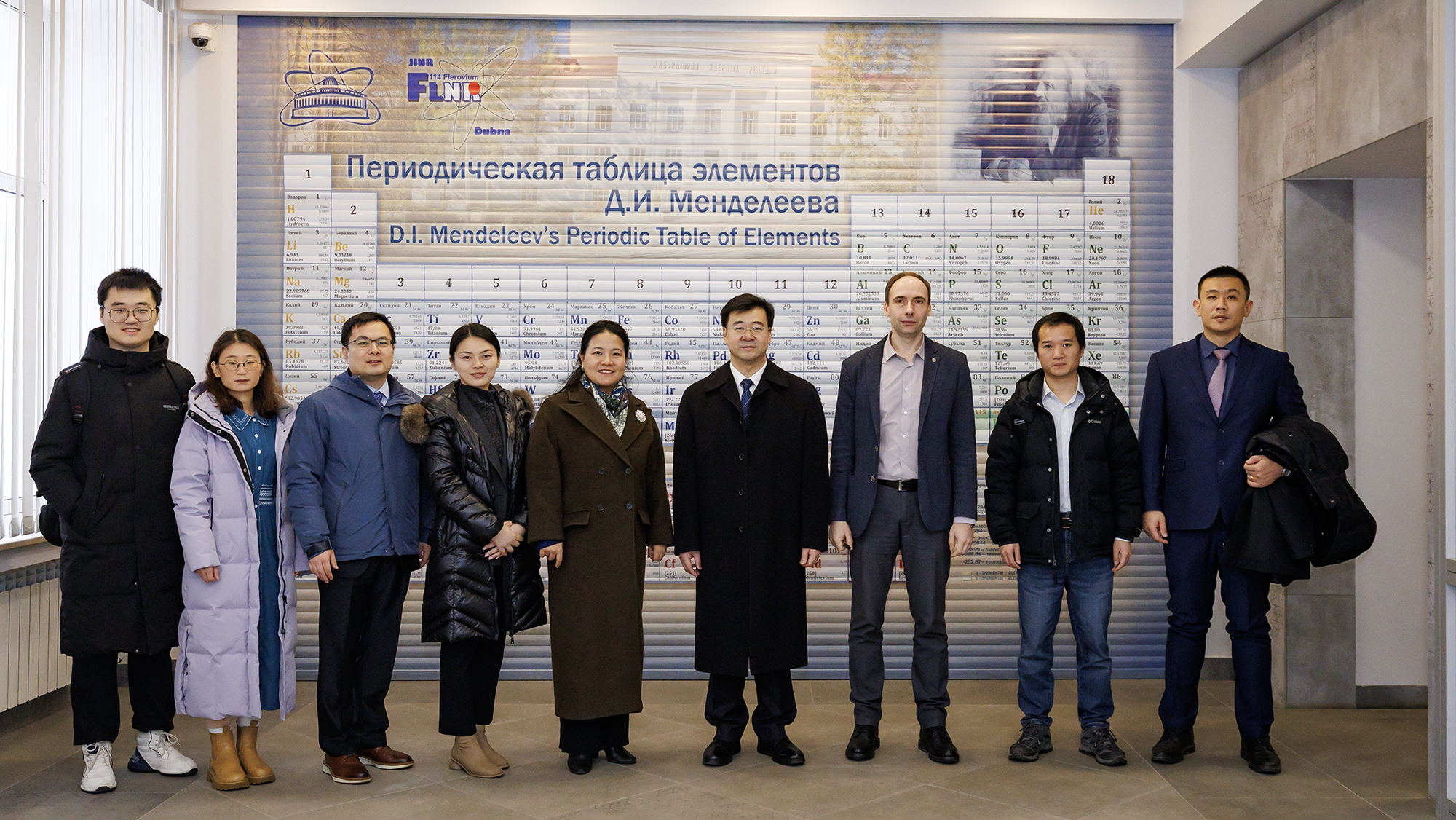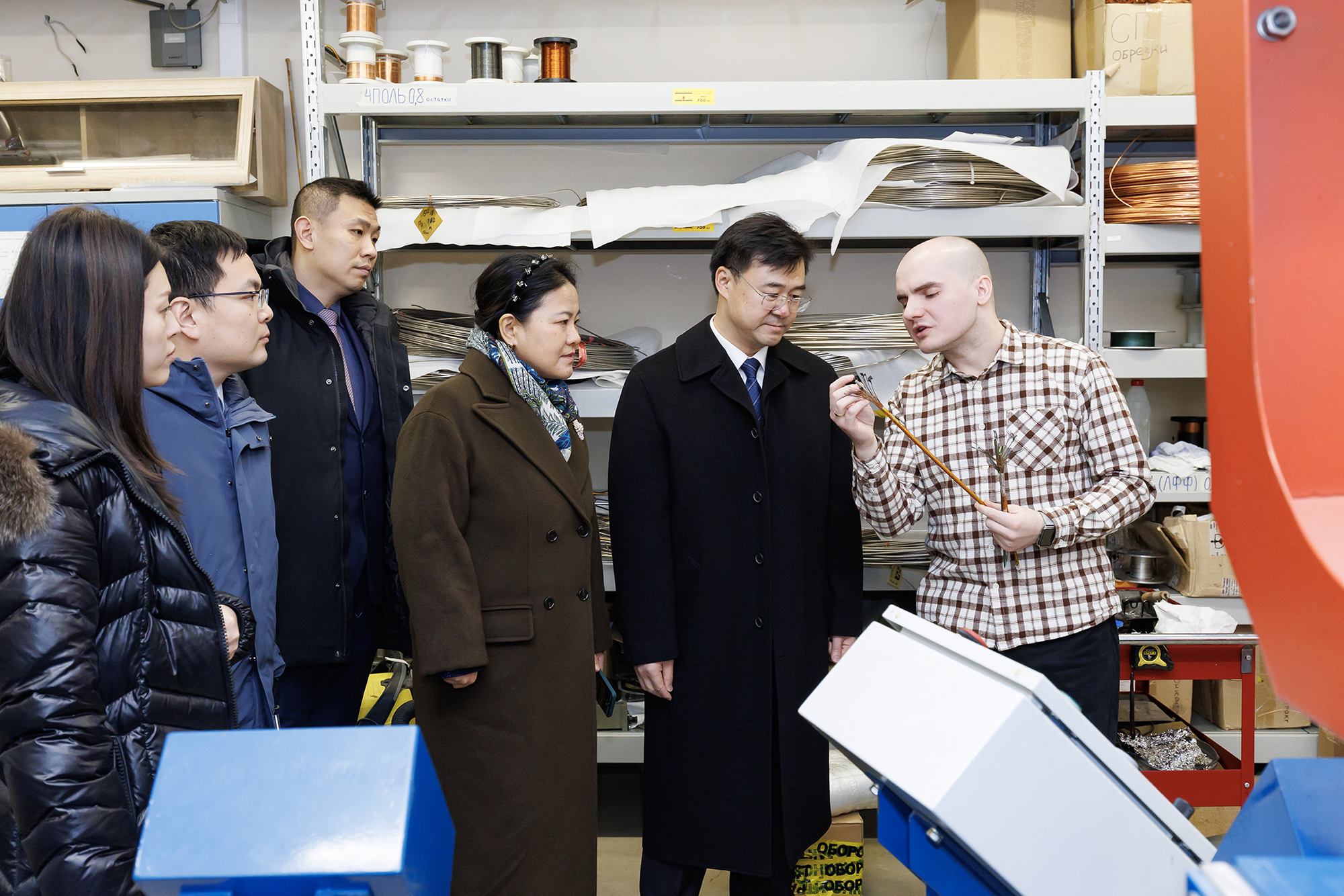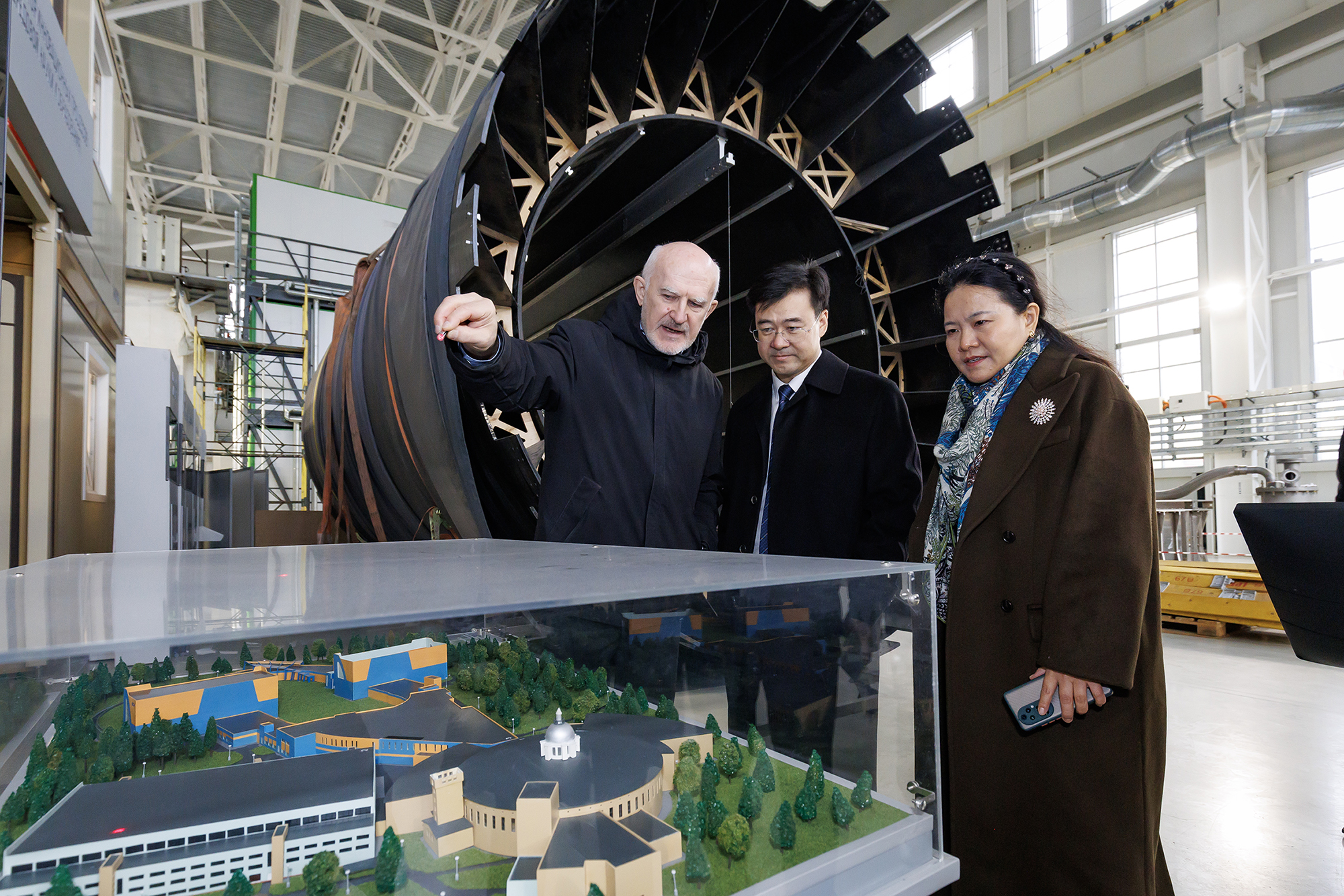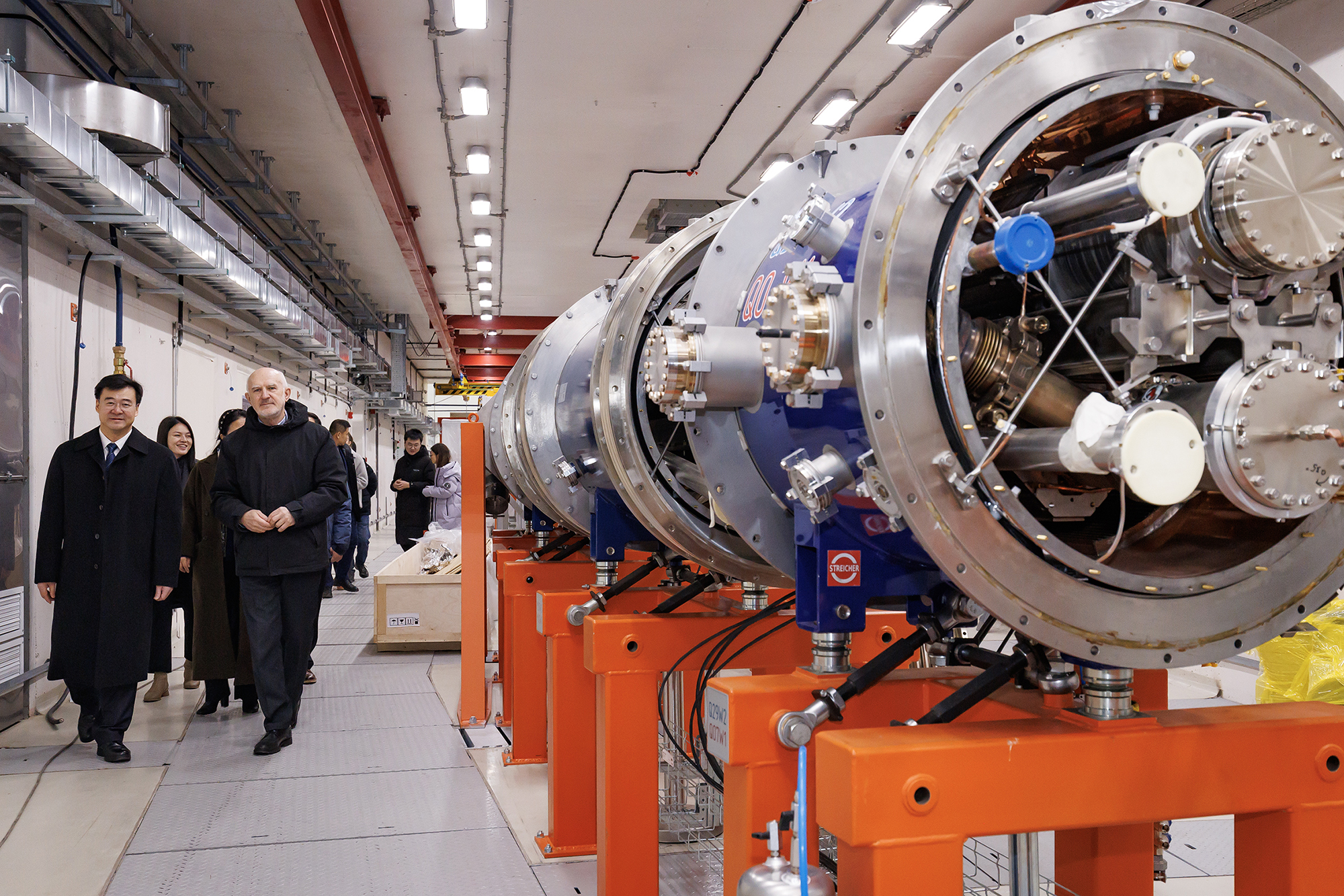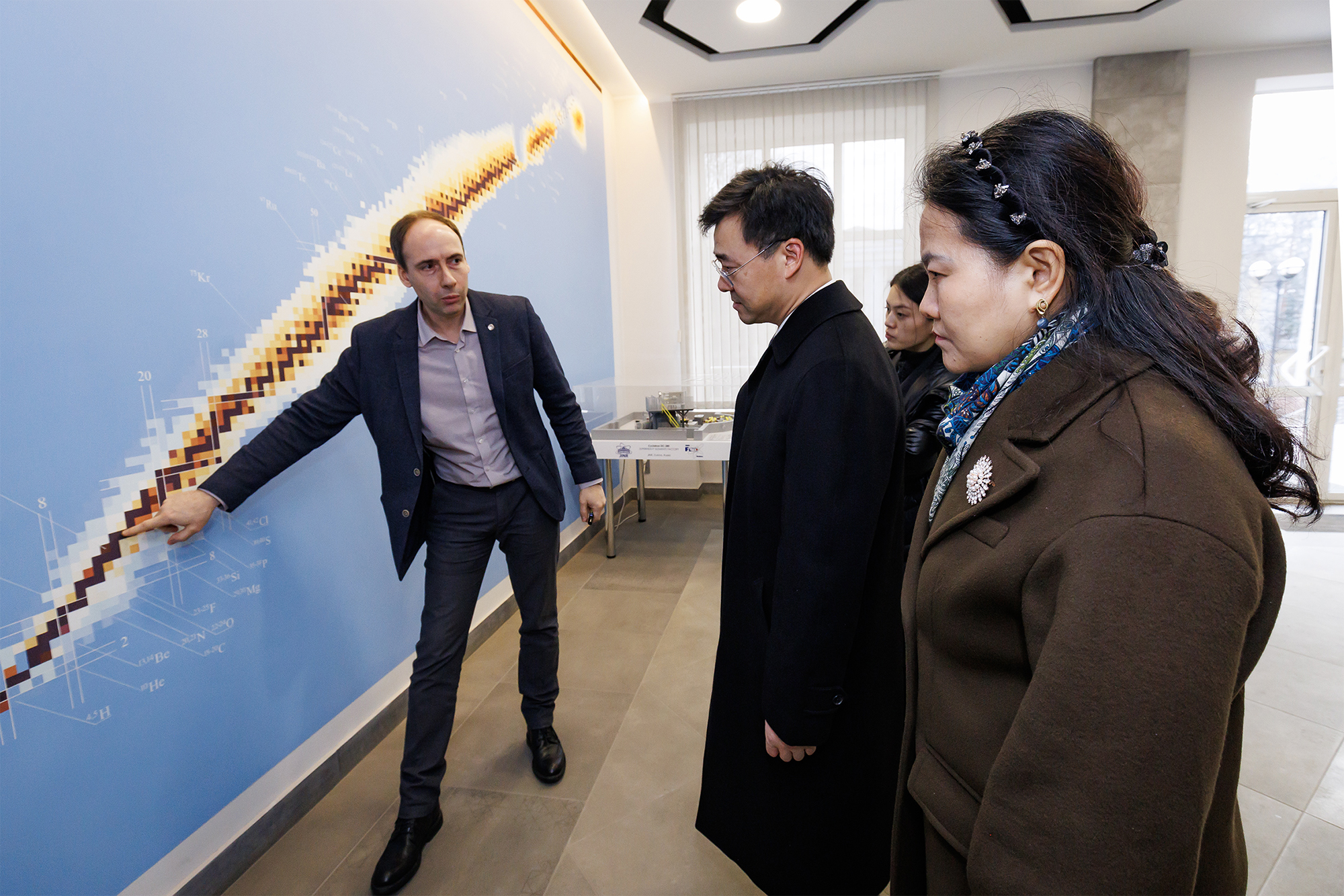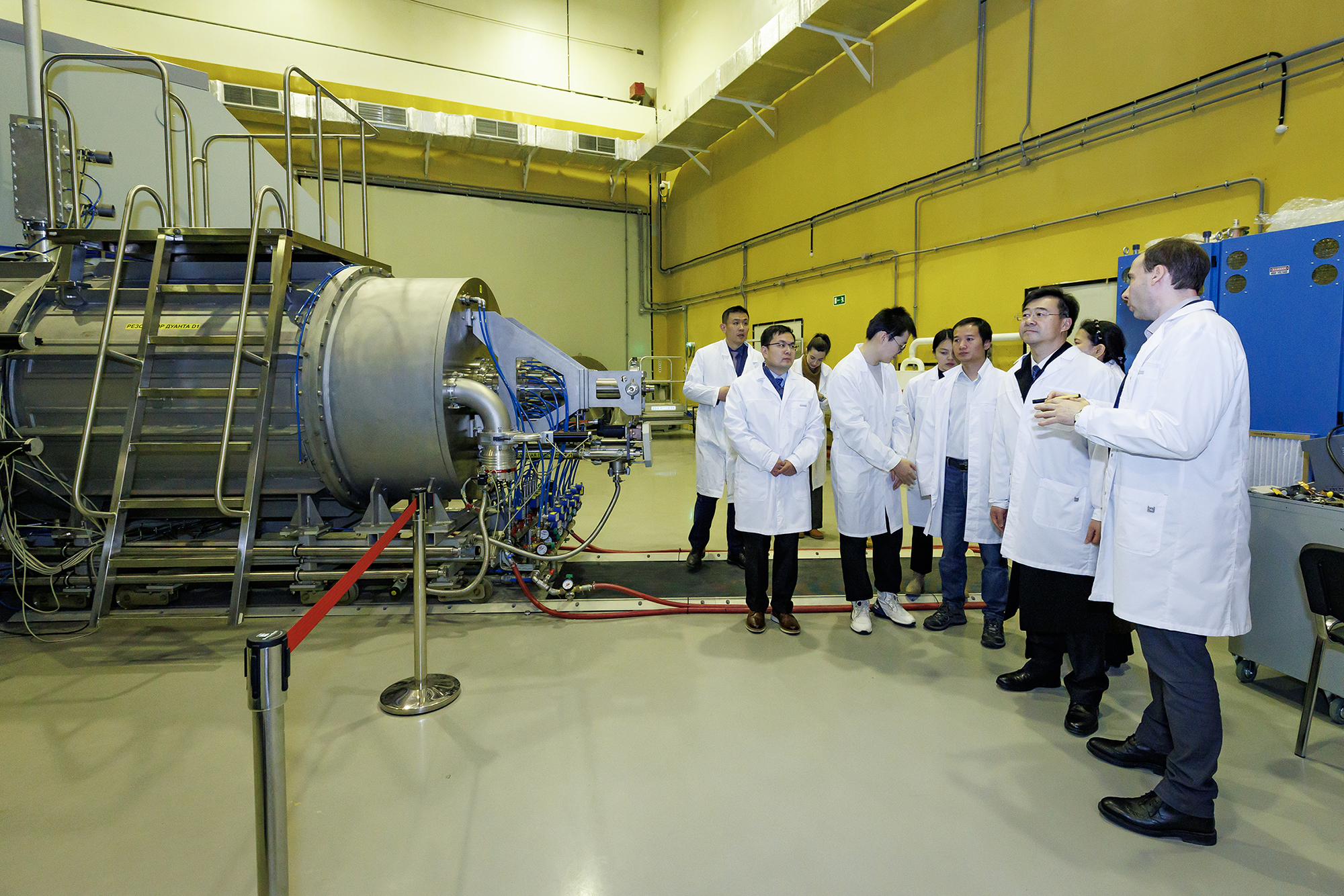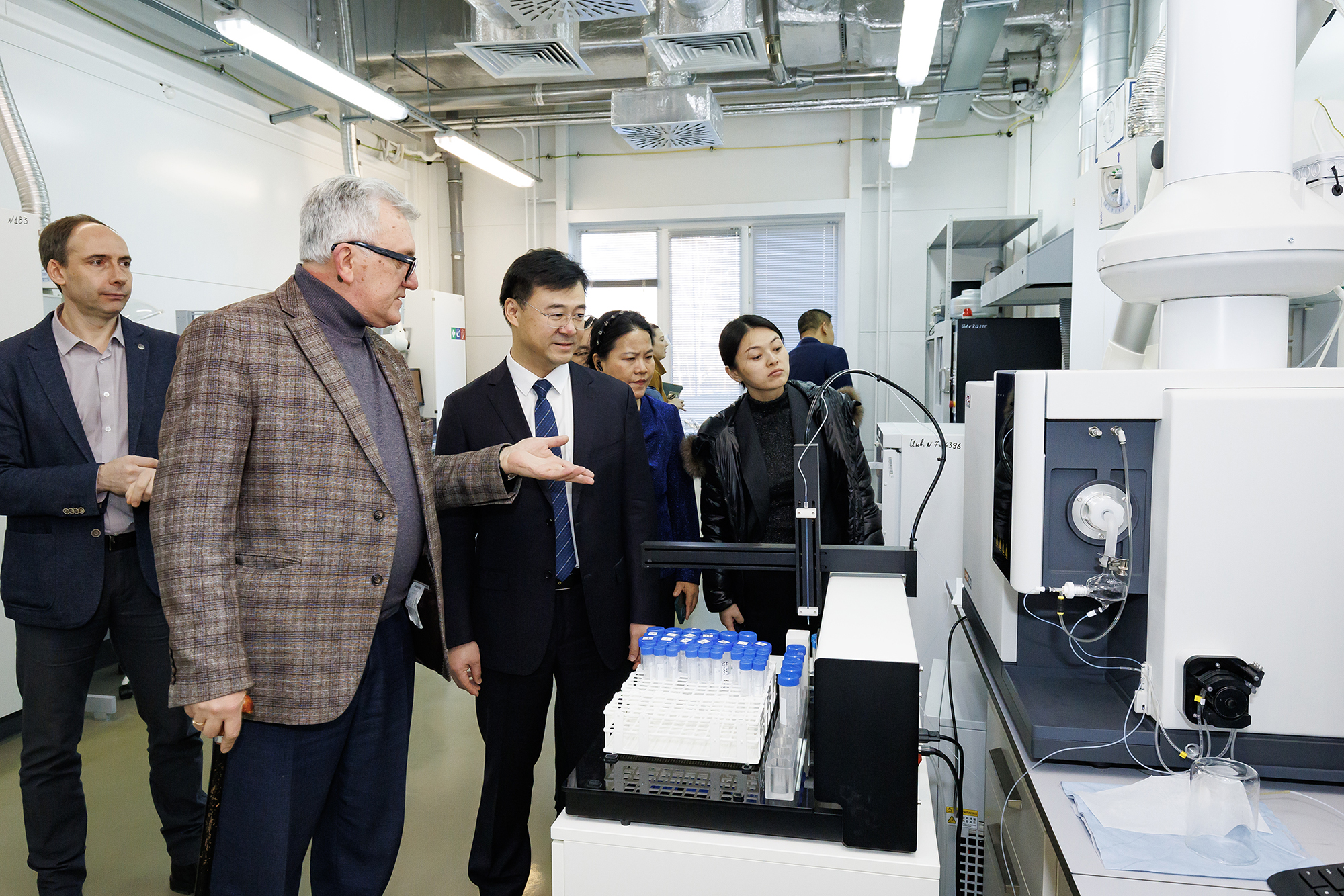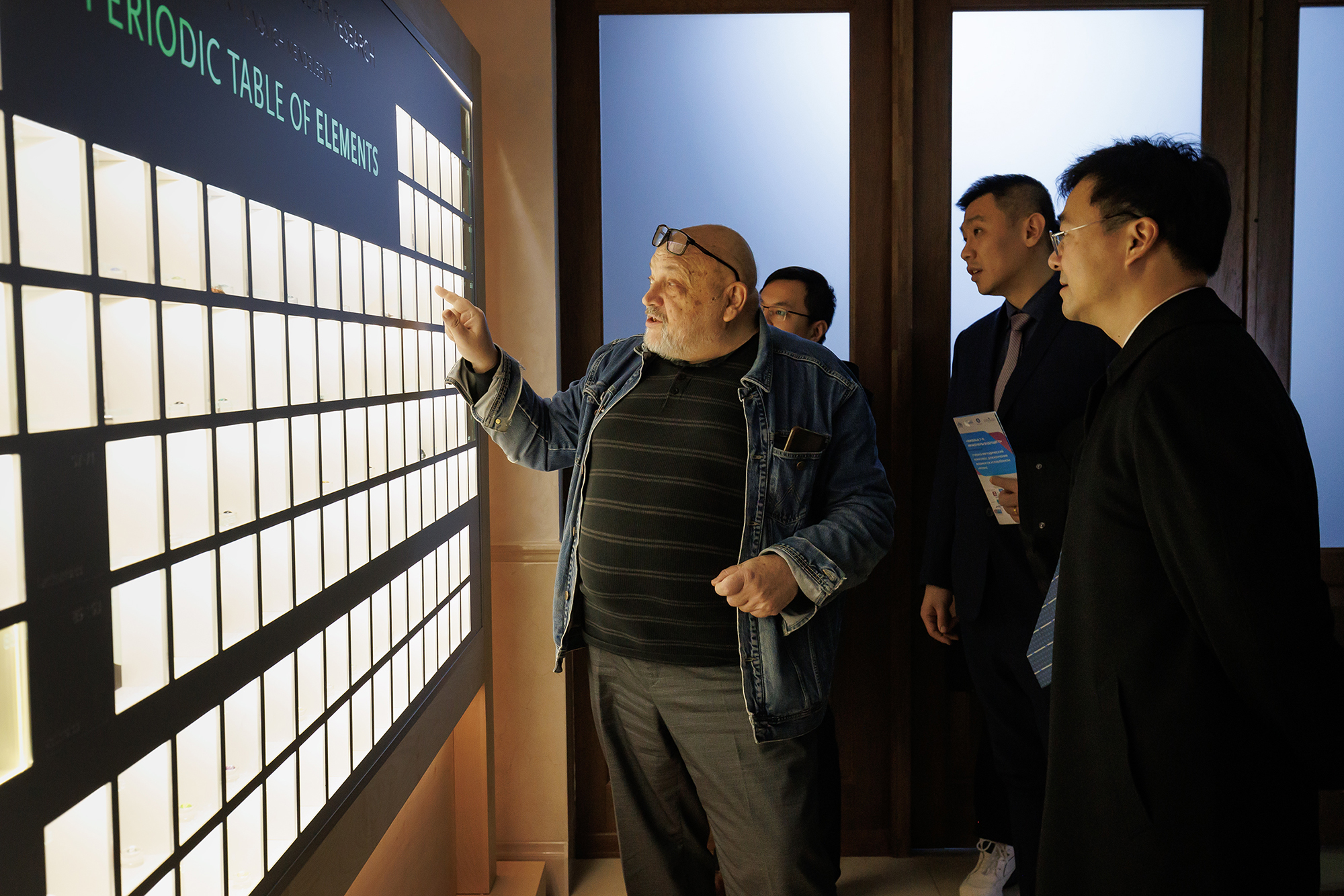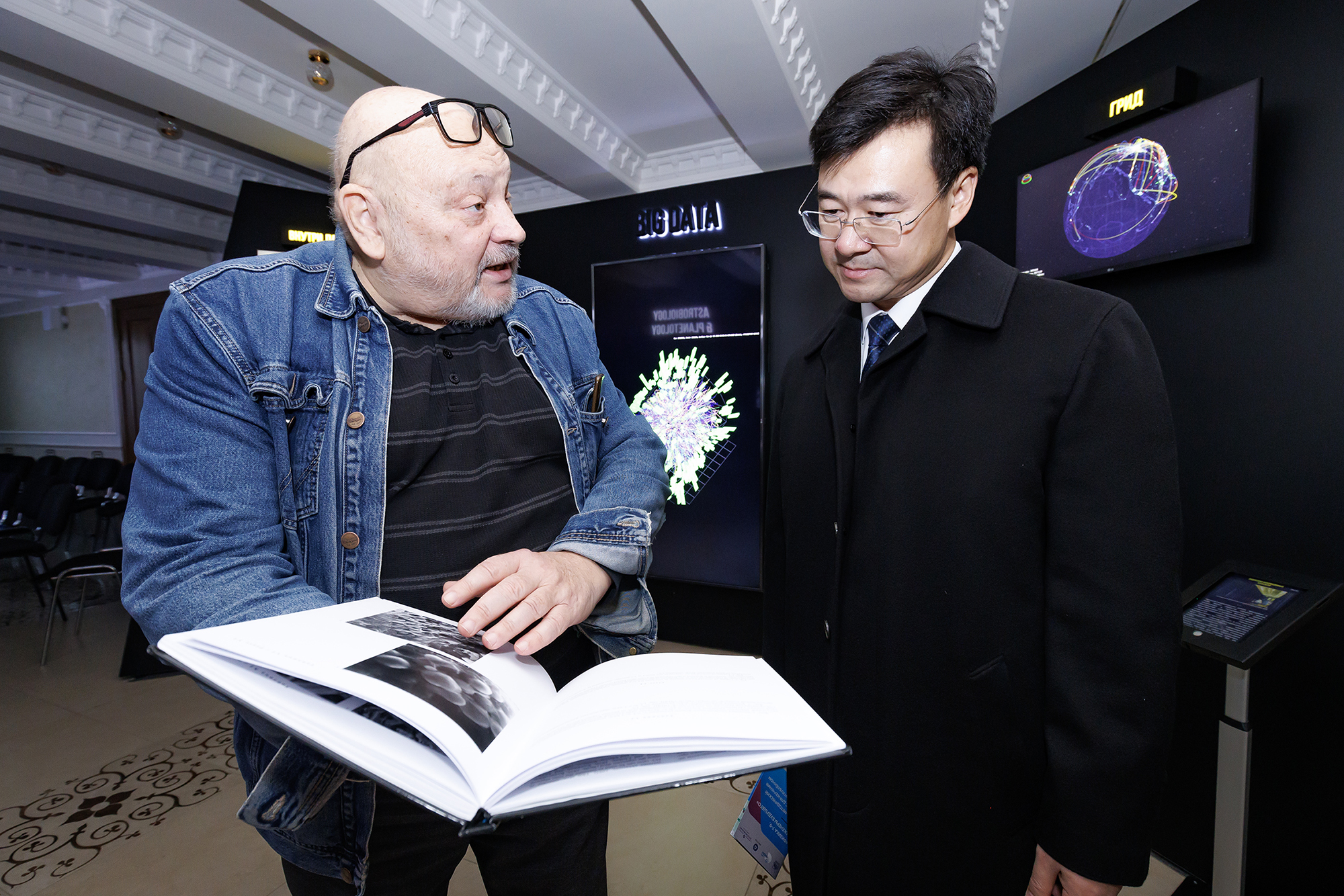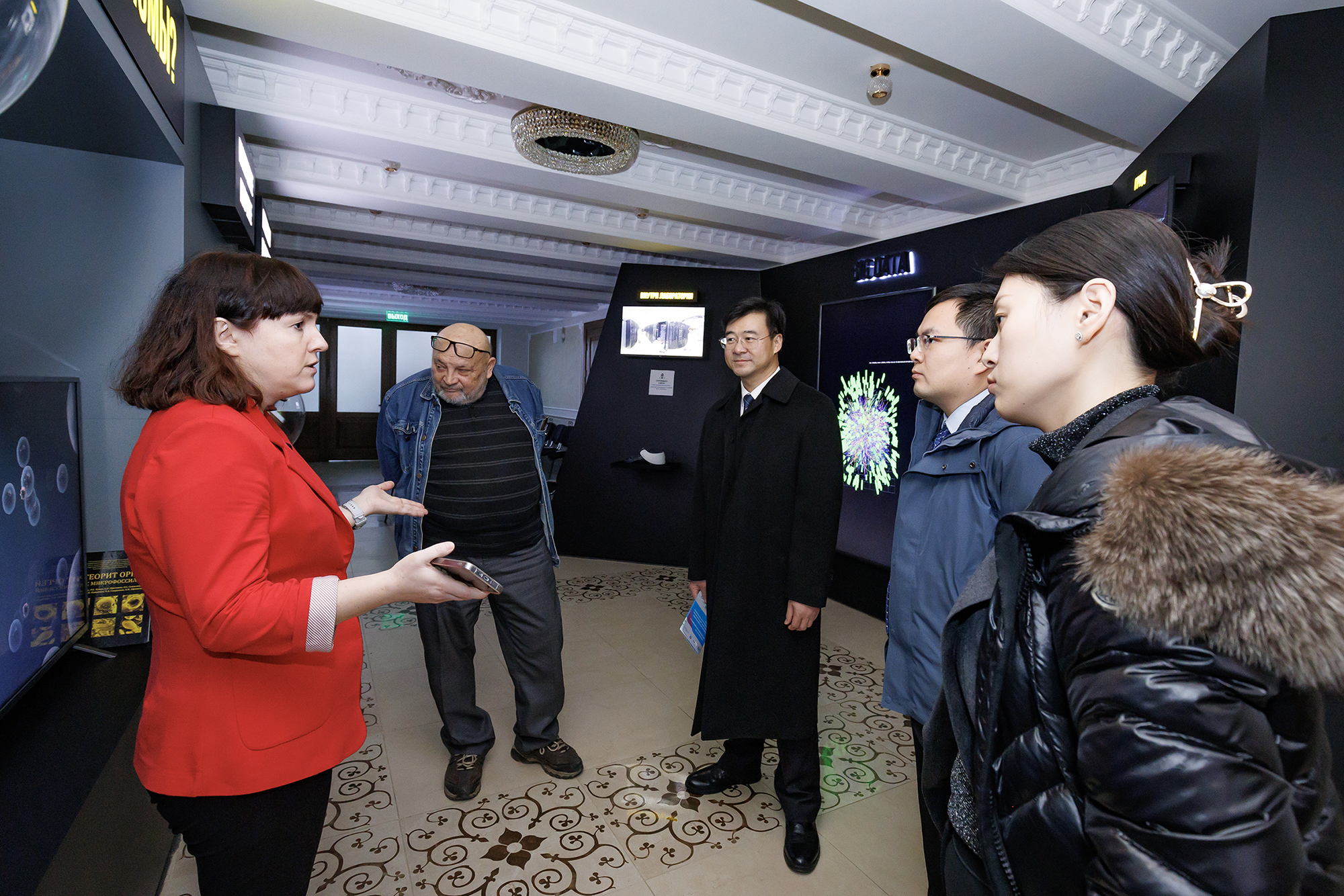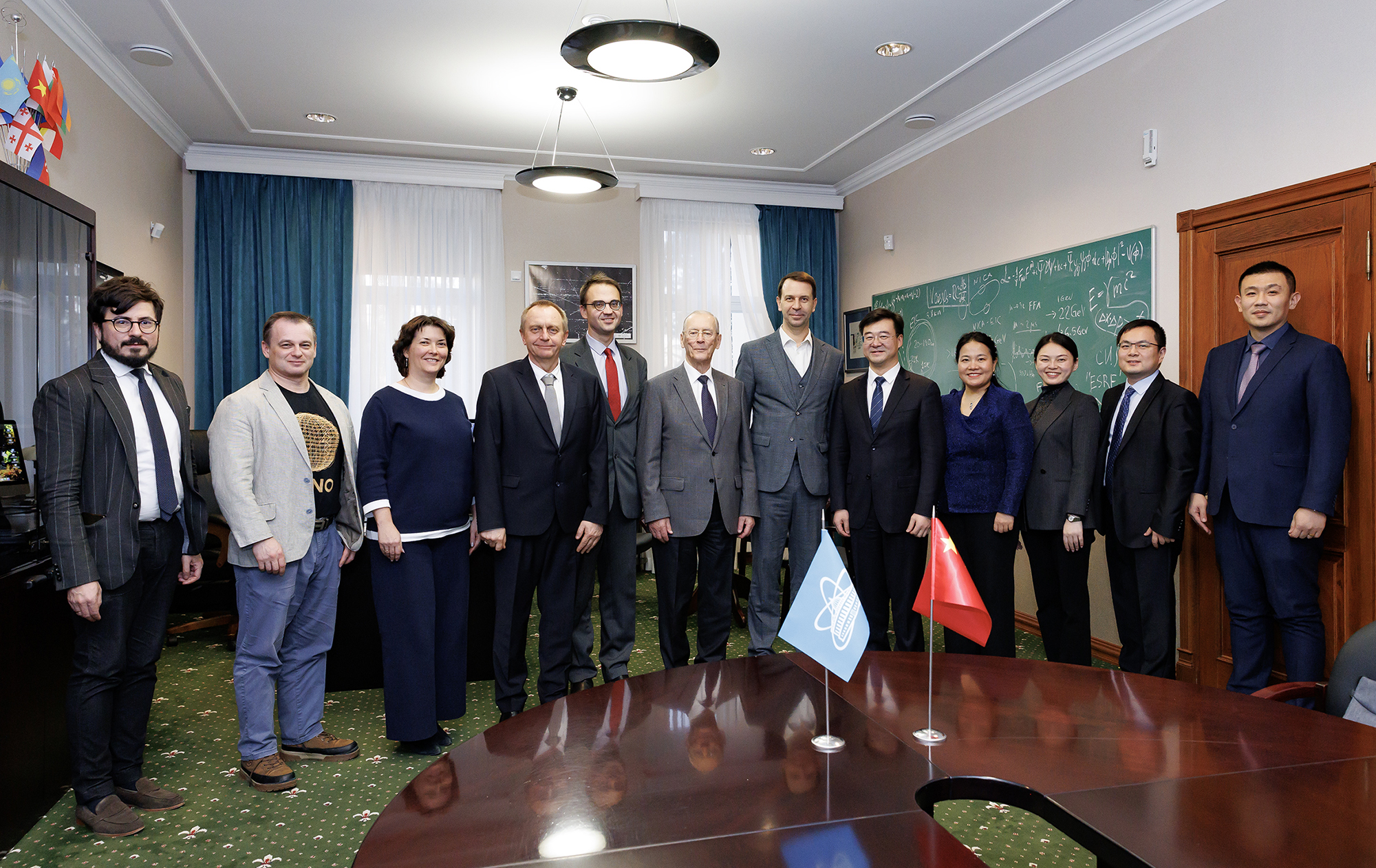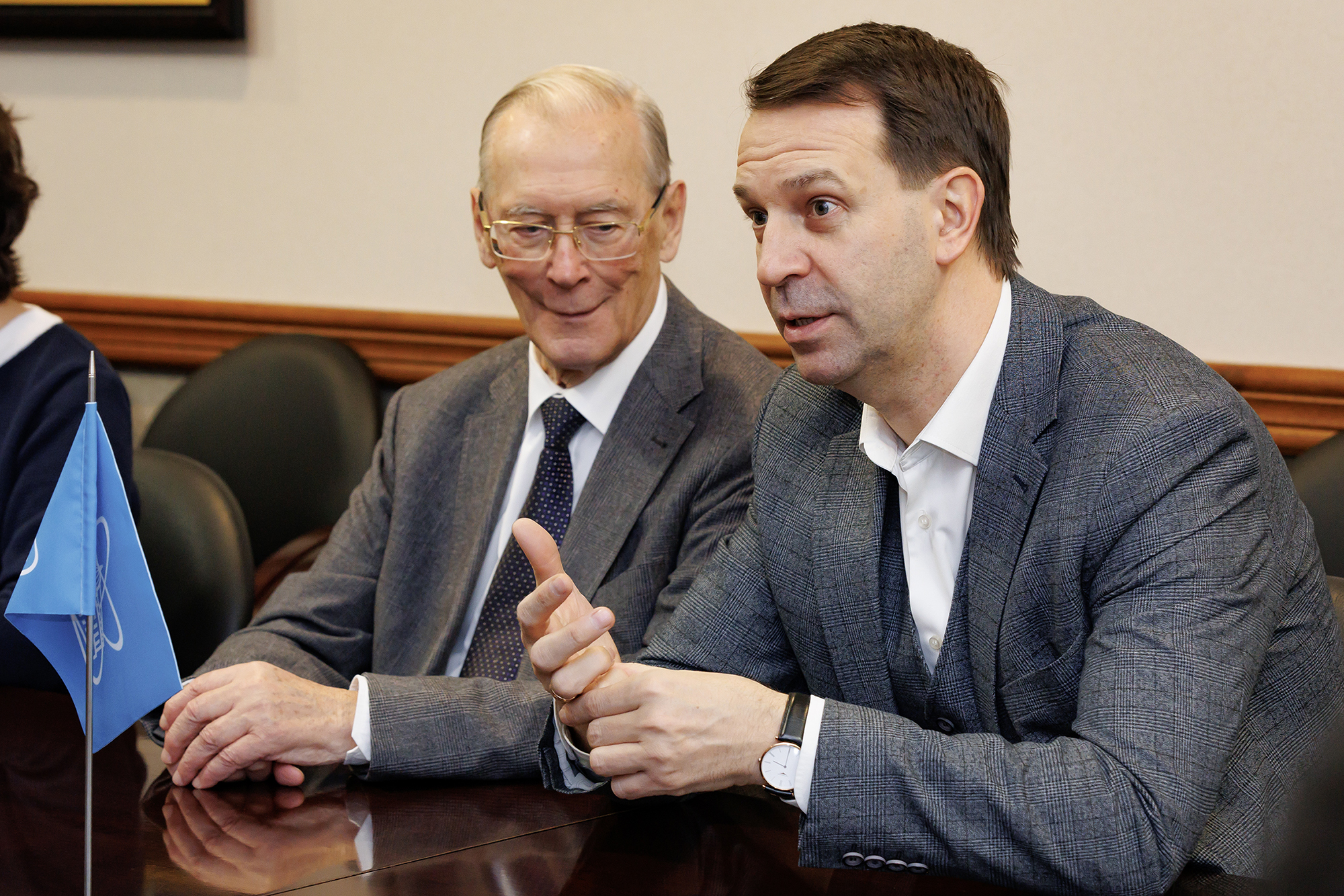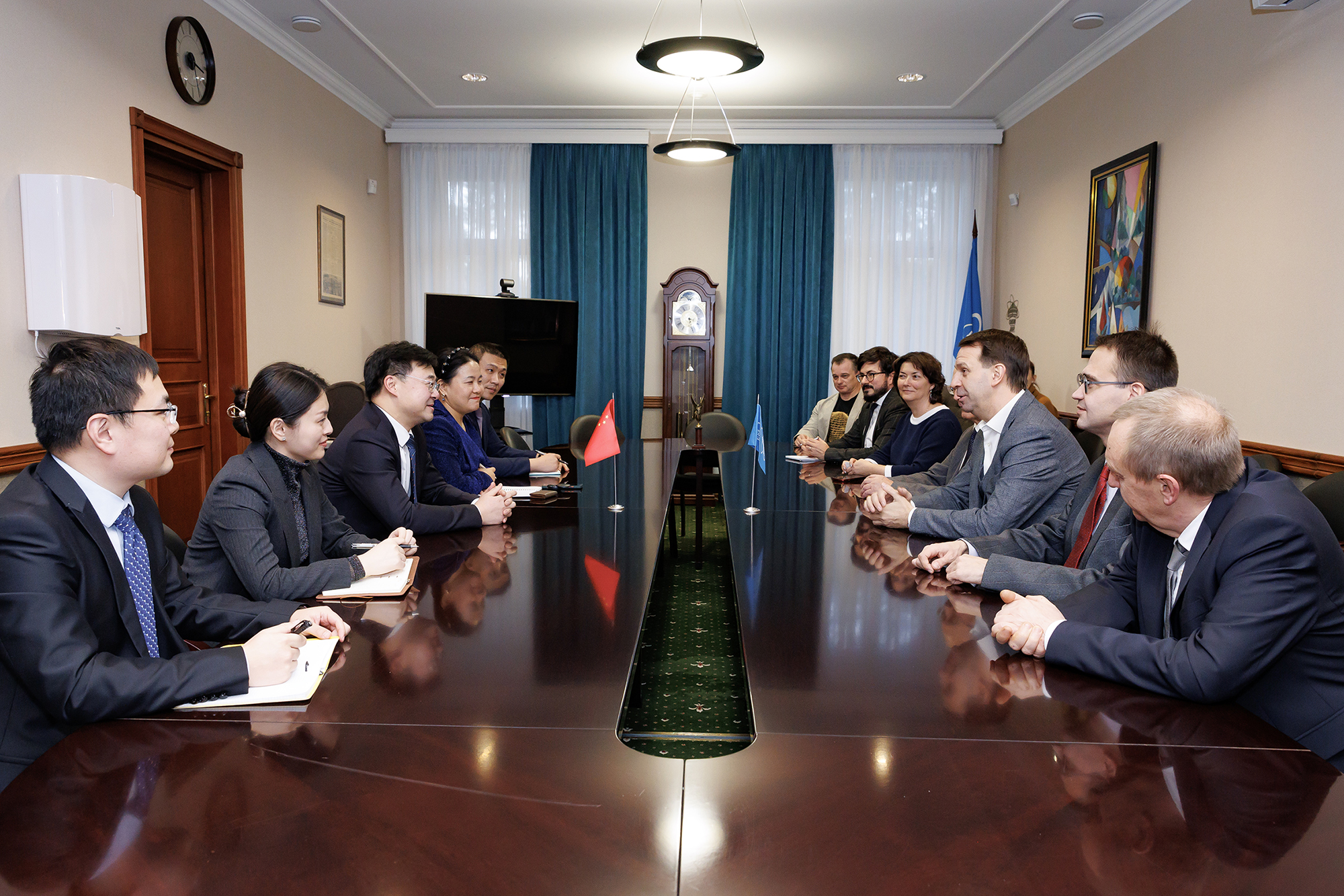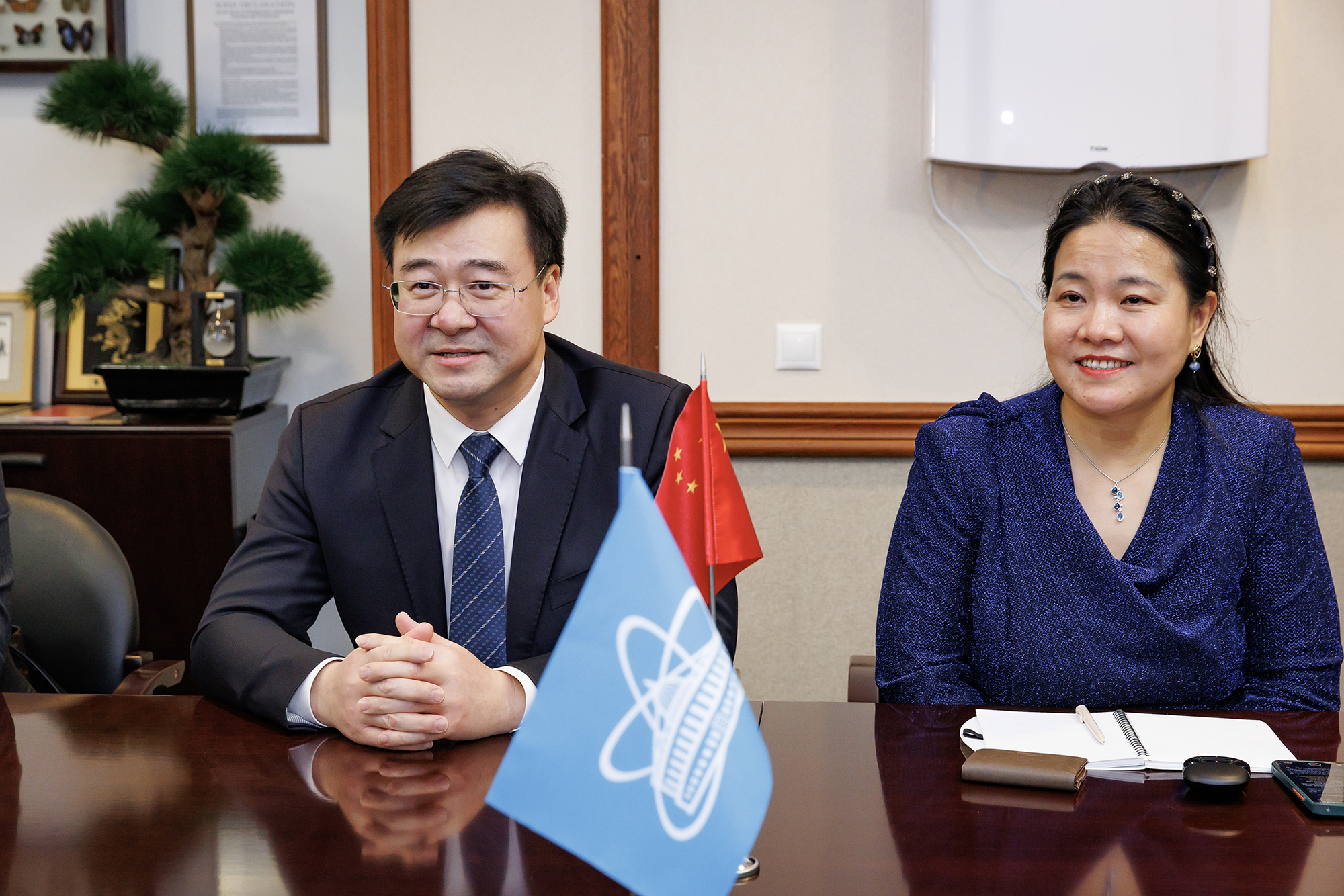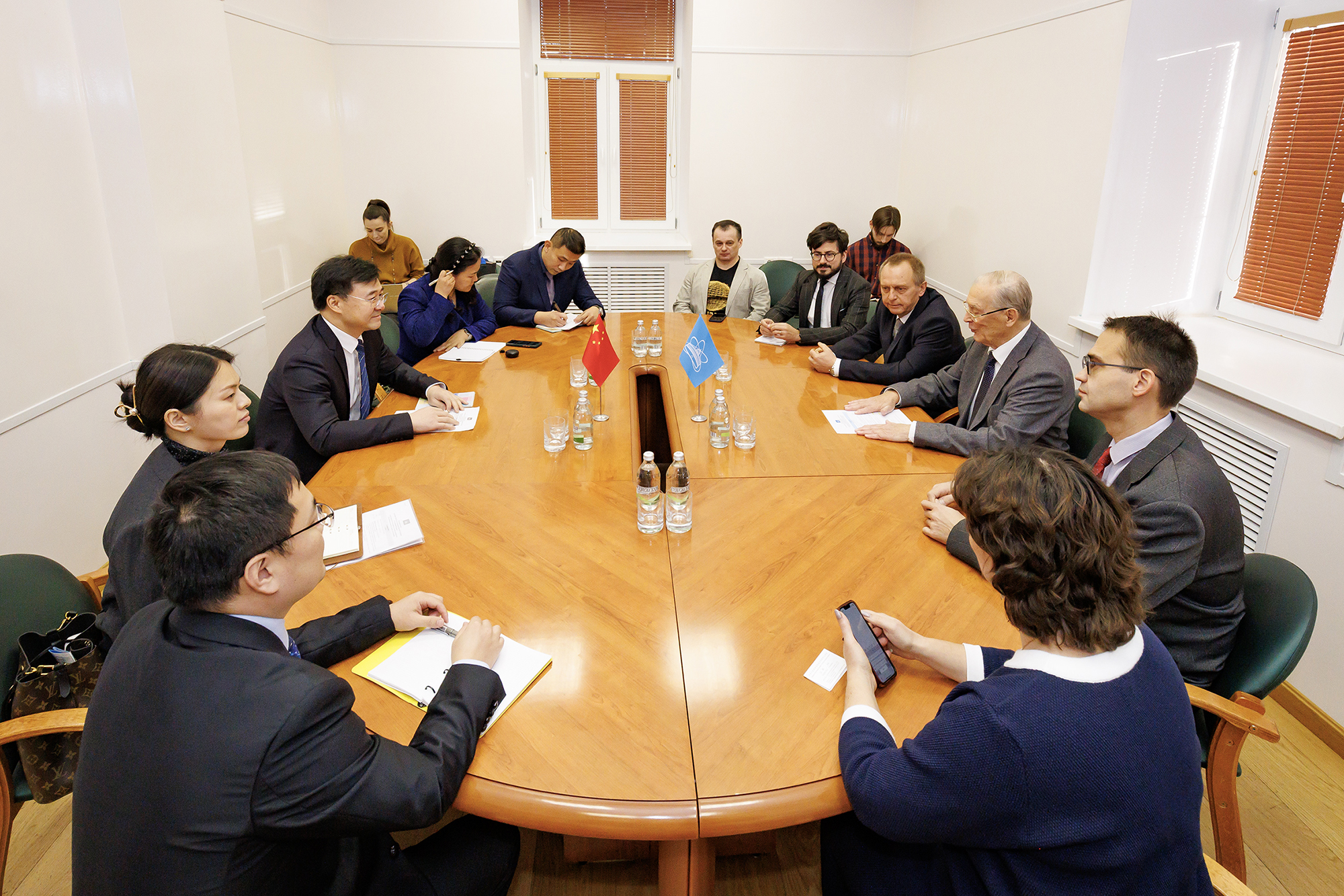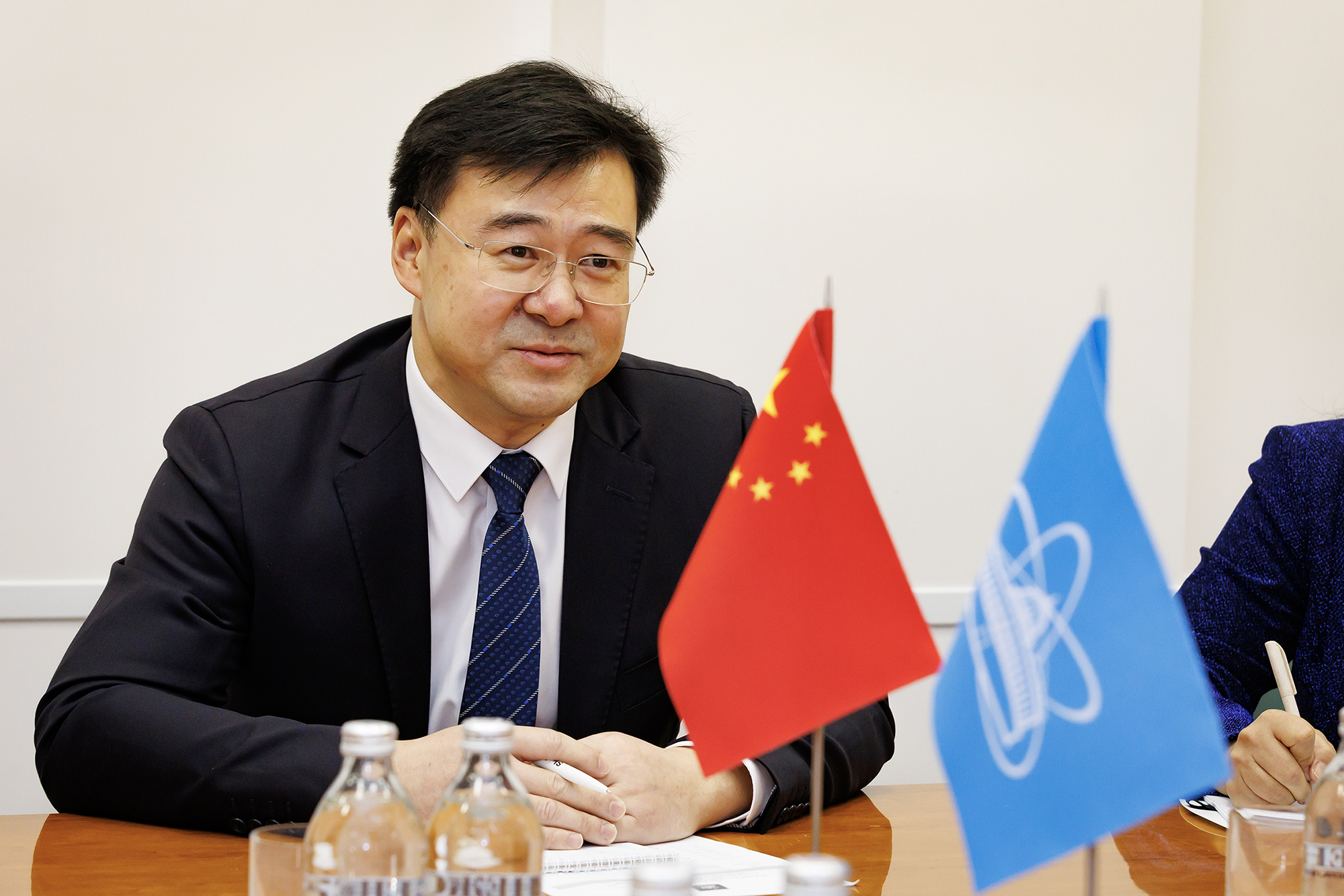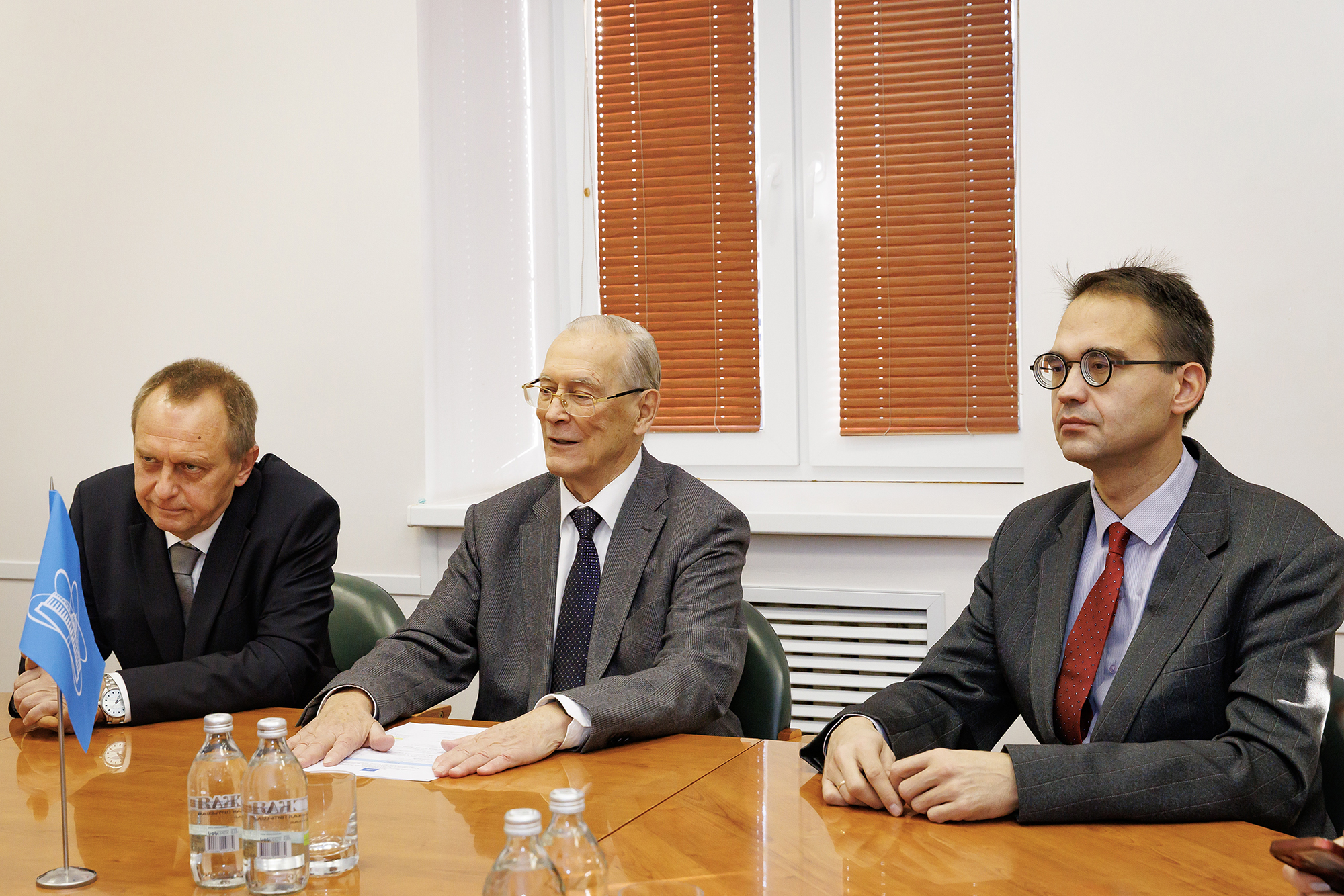JINR-China partnership: working towards new achievements
News, 10 December 2024
On 4 December, a delegation from the Embassy of the People’s Republic of China in Russia visited the Joint Institute for Nuclear Research. During the working meeting with representatives of the JINR Directorate, the parties discussed prospects for the cooperation development in fundamental science, the implementation of new joint projects, and the expansion of research opportunities. JINR and the Embassy confirmed their mutual interest in deepening partnership and engaging in a fruitful dialogue in science and technology.
As part of the introduction to the Joint Institute’s scientific infrastructure, the delegation visited the sites of the NICA Accelerator Complex in the Laboratory of High Energy Physics, the Superheavy Element Factory and the Centre of Applied Physics at the Laboratory of Nuclear Reactions, and the JINR Main Facilities interactive exhibition in the Mir Cultural Centre.
JINR Scientific Leader, Academician of the Russian Academy of Sciences Victor Matveev opened the meeting, noting the exceptional importance of the visit of the Chinese Embassy representatives. “We have high hopes for the further development of our joint projects, many of which are already being actively implemented,” he stressed. In addition, Victor Matveev highlighted the significant historical contribution of China to the creation of JINR and expressed hope for expanding cooperation.
Minister-Counsellor for Science and Technology of the Chinese Embassy in Russia Mr. Zhou Yu shared his impressions of the visit. He stressed: “It is a great honour for us to visit the Joint Institute for Nuclear Research. The Chinese scientific community is very familiar with JINR, because such outstanding researchers as Wang Ganchang and Zhou Guangzhao worked here and achieved important results.”
Zhou Yu noted the ongoing partnership’s success, emphasising the importance of the work of the Joint Coordinating Committee, which was formed under the quadripartite protocol on strengthening cooperation in basic scientific research signed in 2023 by JINR, the Ministry of Science and Higher Education of Russia, the Ministry of Science and Technology of China, and the Chinese Academy of Sciences. In his opinion, such a reliable cooperation mechanism not only contributes to productive interaction between scientists, but also serves as the key to the future development of research infrastructure. “We are ready to provide comprehensive support to achieve common goals and are looking forward to the achievements of our partnership,” the Embassy’s Minister-Counsellor concluded.
The visit to the JINR laboratories left a favourable impression on the Embassy’s Space Advisor, Ms. Jiang Hui. “The high prestige of your Institute in China served as a significant reason for us to get acquainted with the activities of this internationally recognised scientific organization,” Jiang Hui noted and expressed confidence that there is great potential for the development of collaborative research.
Chief Scientific Secretary Sergey Nedelko emphasised the multidisciplinary nature of JINR’s activity: “Our Institute is a prime example of successful multilateral cooperation, a working model of effective interaction between many countries in several research fields at once”. When speaking about all of the JINR research infrastructure being readily available for the Institute’s partners, he specifically outlined the wide range of cooperation areas with the Laboratory of Neutron Physics, including condensed matter physics, materials science, life sciences, and radiobiology.
Deputy Chief Scientific Secretary Alexey Zhemchugov highlighted the successful implementation of all agreements and decisions adopted at the second meeting of the Joint Coordination Committee held in July 2024 in Shanghai. He listed the priority areas for further cooperation development. In particular, he noted the importance of creating a high-speed communication channel between JINR and Chinese research centres to facilitate distributed processing of experimental data obtained in JINR and China. In addition, the Joint Institute for Nuclear Research is interested in a large-scale five-year programme of the development of the scientific infrastructure of the People’s Republic of China, including the new large CEPC Electron-Positron Collider, the Super Tau Charm Factory Project, the HIAF Heavy Ion Accelerator, and other experimental facilities.
Deputy Director of the Laboratory of Nuclear Problems Dmitry Naumov discussed the successful long-term partnership with Chinese colleagues in neutrino physics. He noted the significant contribution of the JINR and Chinese scientists to implementing major international projects, such as as the Deep Underwater Baikal Neutrino Telescope (Baikal-GVD), the JUNO Neutrino Observatory, and the Daya Bay Experiment. Dmitry Naumov expressed confidence in the high potential and prospects for further development of bilateral scientific cooperation in this and other fields.
Head of the International Cooperation Department Otilia-Ana Culicov drew attention to the importance of adapting the social infrastructure of JINR and the city of Dubna to create a comfortable environment for specialists from China and other countries involved in joint projects and working at the Institute. In addition, a proposal was put forward to use JINR’s infrastructure to hold cultural events with the participation of Chinese artists, which will not only enrich the cultural life of the Institute’s personnel, but also be available to Dubna residents.
International Cooperation Advisor to JINR Director Irek Suleymanov spoke about the experience of multilateral cooperation with China, particularly at the events of the International Atomic Energy Agency (IAEA). He noted that the initiatives that Chinese government put forward at these events create favourable conditions for fruitful cooperation.
Mr. Zhou Yu summarised the meeting’s results, noting that he highly appreciated the effectiveness of cooperation mechanisms developed and the level of cooperation between JINR and the People’s Republic of China. Taking into account the numerous common interests, he suggested focusing on priority areas and recommended that during the next year’s meeting of the Joint Coordination Committee, the participants of the Expert Working Group review each project in detail to determine the most promising ones.
The visit of the delegation of the Chinese Embassy to Russia ended with a meeting with Director of the Joint Institute for Nuclear Research, Academician Grigory Trubnikov. The parties extensively discussed prospects and mechanisms for further fruitful cooperation between JINR and Chinese scientific groups.
